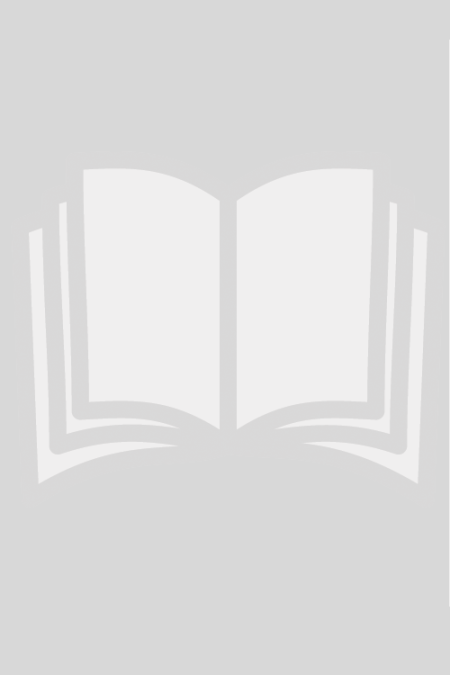‘Uplifting and utterly defiant’ Matt Nixson, Daily Express
‘Immediate and important … This is an insider’s account of how an ordinary life became extraordinary’ Helen Davies, The Times
‘At first we did not understand what war was.
You can’t understand it until you see it and hear it.’
As Russian forces build up beyond the Ukrainian borders and the prospect of war becomes a devastating reality, Andrey Kurkov chronicles the shocking impact of Russia’s invasion of Ukraine. Part political and historical commentary, part personal journal, Kurkov explores the fraught interrelation of Russian and Ukrainian history, the complicated coexistence of their languages, and in describing how a peaceful society defies occupation, the author builds an image of a culture which, contrary to Putin’s claims, is unique and democratic, liberal and diverse, one that will ‘resist to the end’.
Redirecting his satirical flair to paint a defiant portrait of his compatriots, Kurkov tells of a people united against erasure. Bread is baked and shared in the ruins. An amputee is carried aboard an evacuating train, grandmothers escape occupied towns with their noisome roosters. And despite the networks of toloka, of community work for common good, being stretched to breaking point, and the embittering reticence of some European nations to make good their promises of aid and armaments, hope channels its perennial resistance: children are born deep within besieged cities and farmers go on working the fields made lethal by unexploded shells. Kurkov braids his personal story with those of other displaced Ukrainians and the communities that have gone to extraordinary lengths to care for them. Showing an irrepressible spirit, they ‘wait for the moment when it will be safe to return,’ he writes, ‘just as I am waiting.’
‘Immediate and important … This is an insider’s account of how an ordinary life became extraordinary’ Helen Davies, The Times
‘At first we did not understand what war was.
You can’t understand it until you see it and hear it.’
As Russian forces build up beyond the Ukrainian borders and the prospect of war becomes a devastating reality, Andrey Kurkov chronicles the shocking impact of Russia’s invasion of Ukraine. Part political and historical commentary, part personal journal, Kurkov explores the fraught interrelation of Russian and Ukrainian history, the complicated coexistence of their languages, and in describing how a peaceful society defies occupation, the author builds an image of a culture which, contrary to Putin’s claims, is unique and democratic, liberal and diverse, one that will ‘resist to the end’.
Redirecting his satirical flair to paint a defiant portrait of his compatriots, Kurkov tells of a people united against erasure. Bread is baked and shared in the ruins. An amputee is carried aboard an evacuating train, grandmothers escape occupied towns with their noisome roosters. And despite the networks of toloka, of community work for common good, being stretched to breaking point, and the embittering reticence of some European nations to make good their promises of aid and armaments, hope channels its perennial resistance: children are born deep within besieged cities and farmers go on working the fields made lethal by unexploded shells. Kurkov braids his personal story with those of other displaced Ukrainians and the communities that have gone to extraordinary lengths to care for them. Showing an irrepressible spirit, they ‘wait for the moment when it will be safe to return,’ he writes, ‘just as I am waiting.’
Newsletter Signup
By clicking ‘Sign Up,’ I acknowledge that I have read and agree to Hachette Book Group’s Privacy Policy and Terms of Use
Reviews
A vivid, moving and sometimes funny account of the reality of life during Russia's invasion
No-one with the slightest interest in this war, or the nation on which it is being waged, should fail to read Andrey Kurkov
The author's on-the-ground account is packed with surprising details about the human effects of the Russian assault. . . His voice is genial but also impassioned, never more so than when deploring Putin's efforts to erase Ukrainian culture and history. Ukraine, he says, 'will either be free, independent and European, or it will not exist at all'. That's why the war has to be fought, with no concession of territory. And he remains quietly hopeful that it will be won
Andrey Kurkov [is] one of the most articulate ambassadors to the West for the situation in his homeland
Probably the first important literary work to emerge from a conflict that appears likely to alter the course of world history, Diary of an Invasion is a thoughtful and humane memoir by one of Ukraine's most prominent living authors
Immediate and important. . . From the grim incredulity at Russians massing on the border to the displacement of millions of people, this is an insider's account of how an ordinary life became extraordinary. It is also about survival, hope and humanity
Kurkov's diaries. . . make the early days of the war vivid for the reader. He writes stirringly of the notes people begin leaving in their cars offering lifts to the border; of his sudden longing for the comforting sweetness of honey; of the cigarettes required to bribe Russian soldiers at checkpoints in the east. Here are the kind of stories you don't see on the television news
Uplifting and utterly defiant
It is little wonder. . . Kurkov, known for his keen eye for the absurdities of life, would pack his diary of the war with
fascinating and eccentric details. . . yet what makes Kurkov's diary memorable is its departures into the more quotidian gossip-filled trips to the sauna, Ukraine's morale-boosting victory in the Eurovision Song Contest, ruminations on the status of Ukrainian literature amid paper shortages, and ploys to protect animals in the country's shuttered zoos
Kurkov, an internationally-lauded novelist, is strongest when he writes on cultural matters. And this, he demonstrates convincingly, is a cultural war
With the sort of eye-witness detail missing from even the most rigorous newspaper account, this book makes for essential reading

